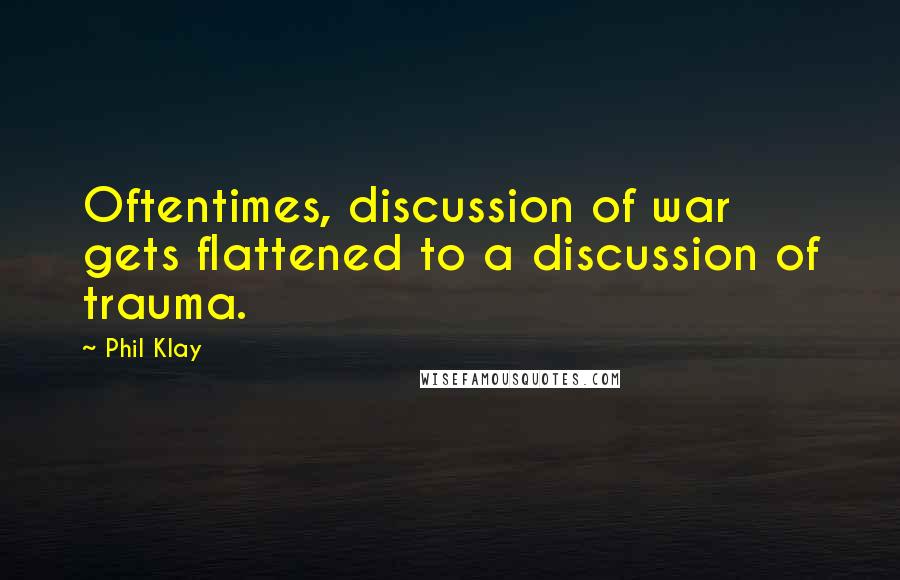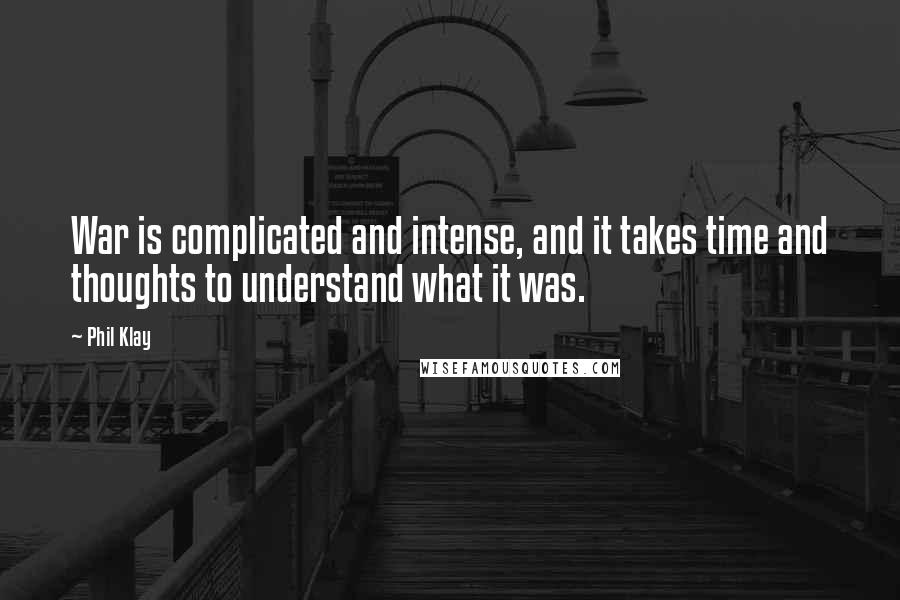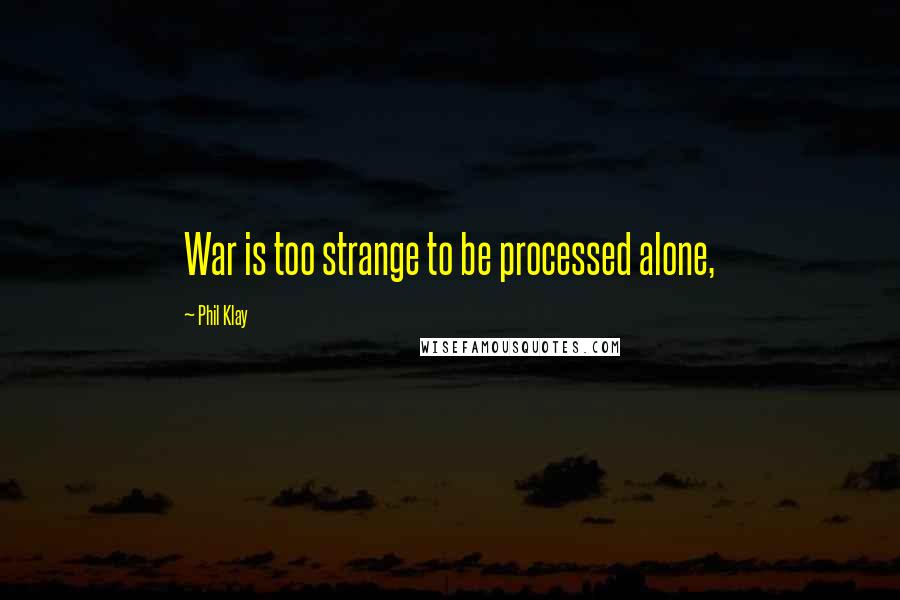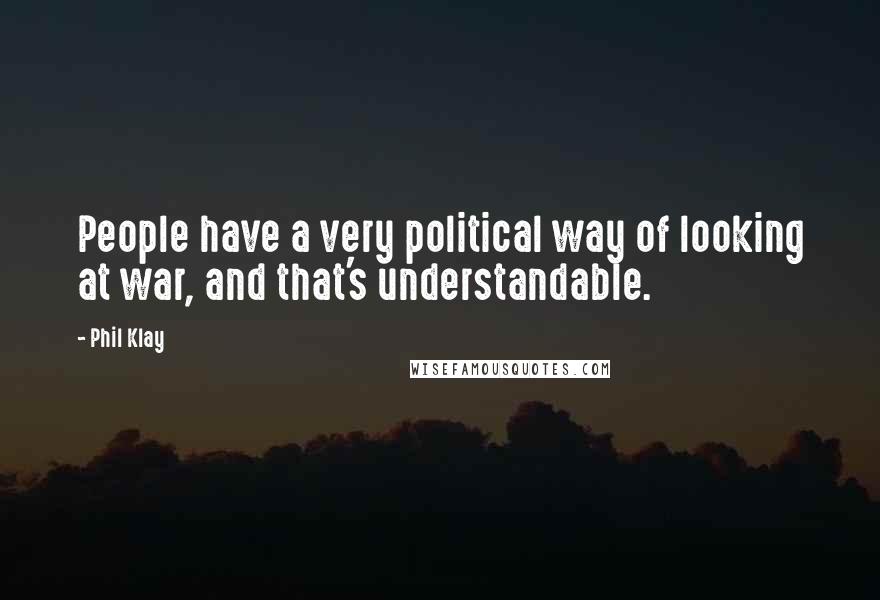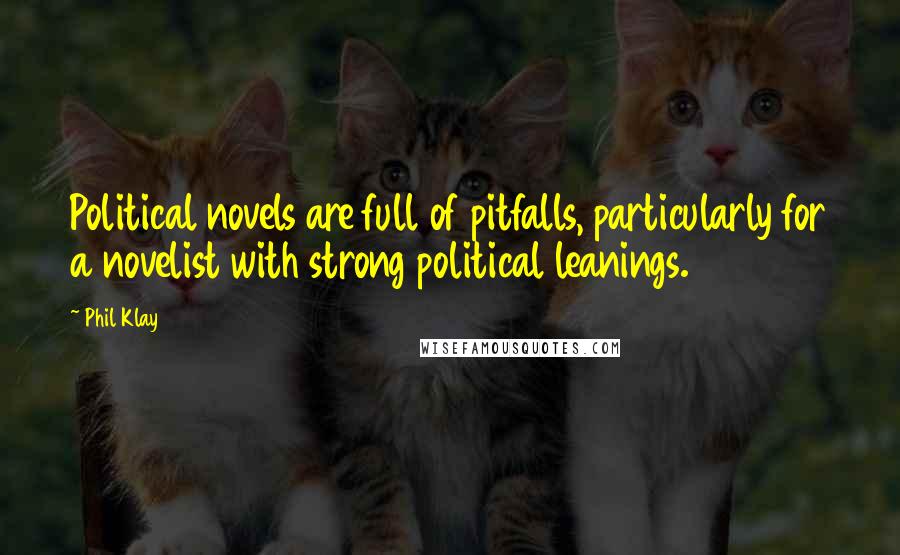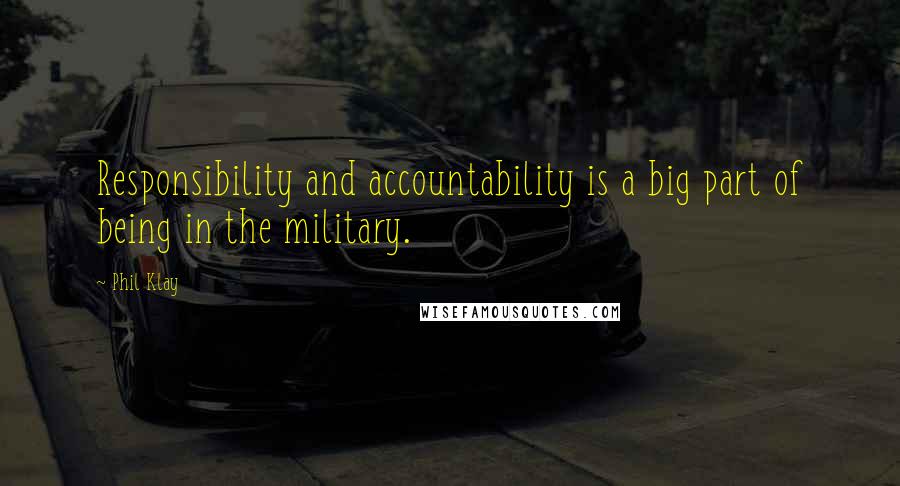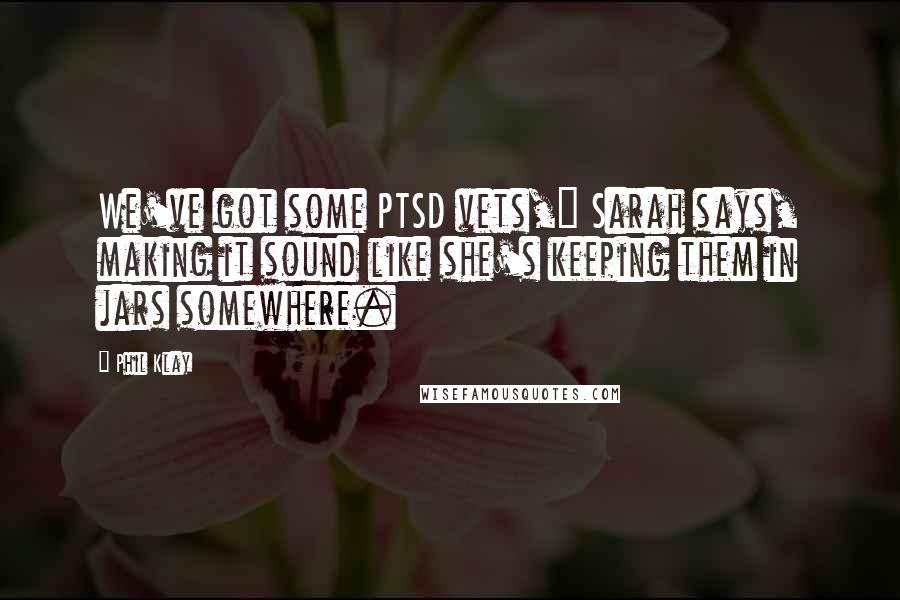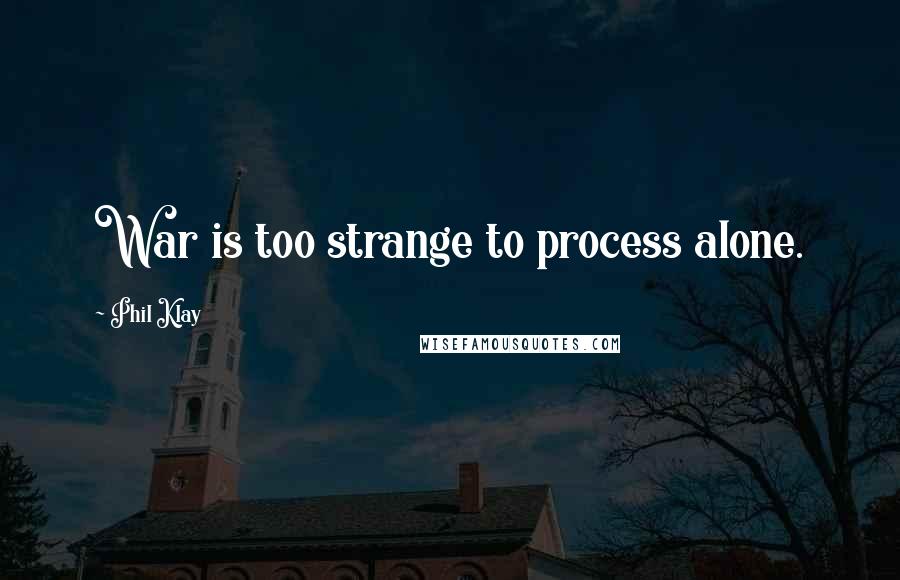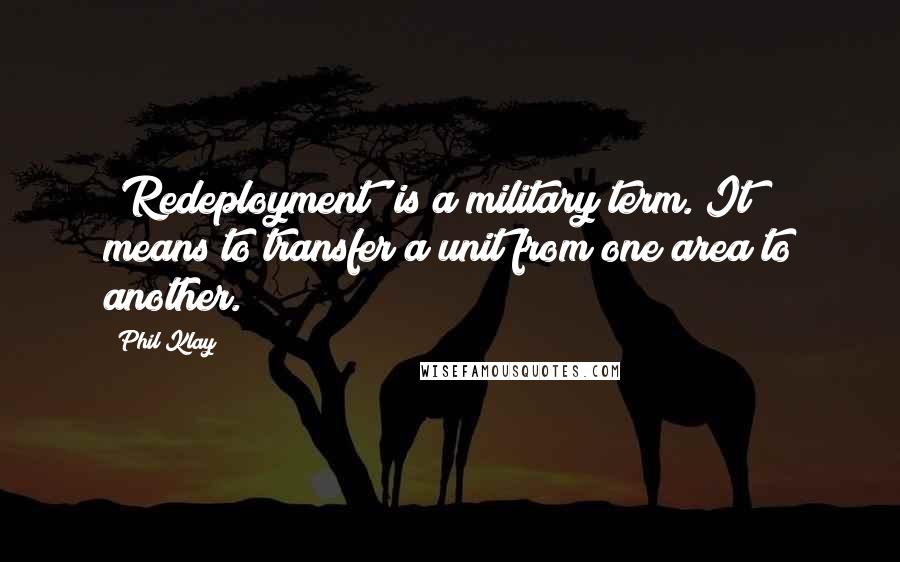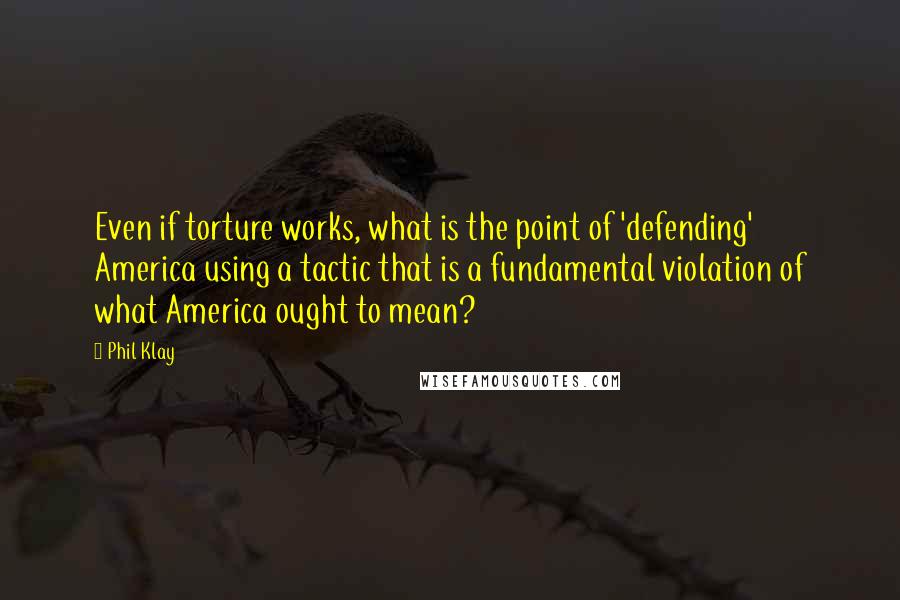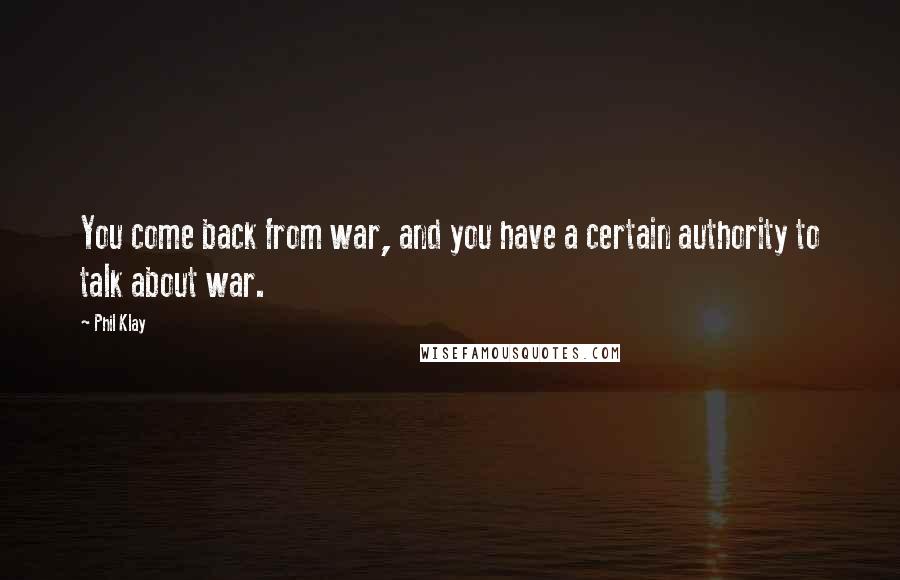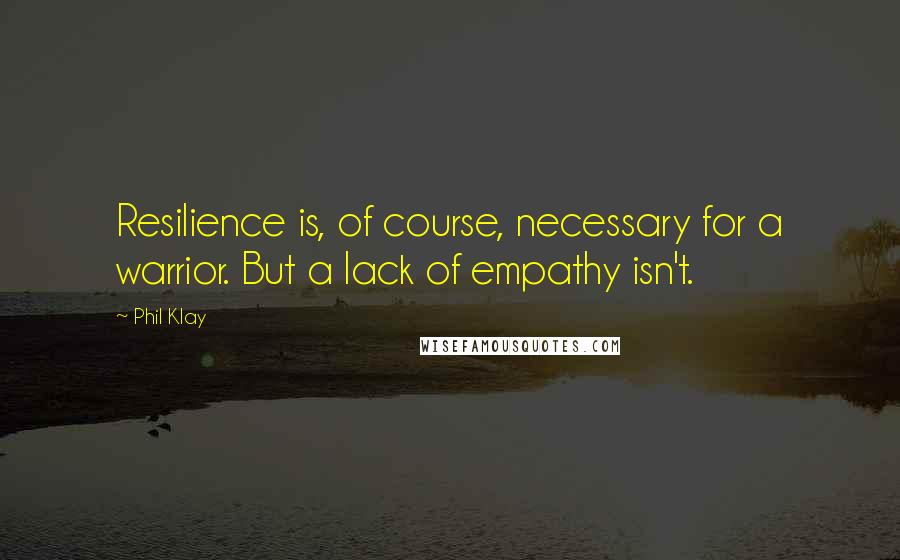Phil Klay Quotes
Top 66 wise famous quotes and sayings by Phil Klay
Phil Klay Famous Quotes & Sayings
Discover top inspirational quotes from Phil Klay on Wise Famous Quotes.
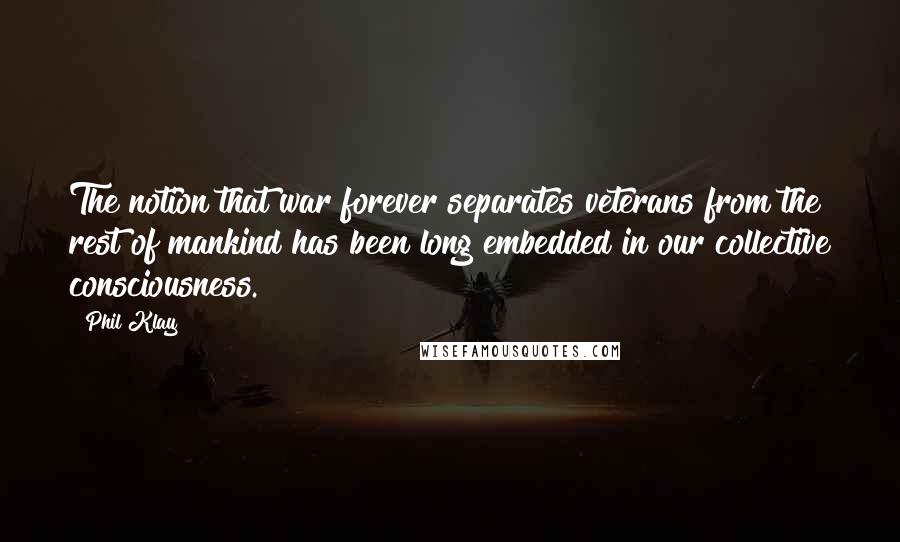 The notion that war forever separates veterans from the rest of mankind has been long embedded in our collective consciousness.
The notion that war forever separates veterans from the rest of mankind has been long embedded in our collective consciousness.
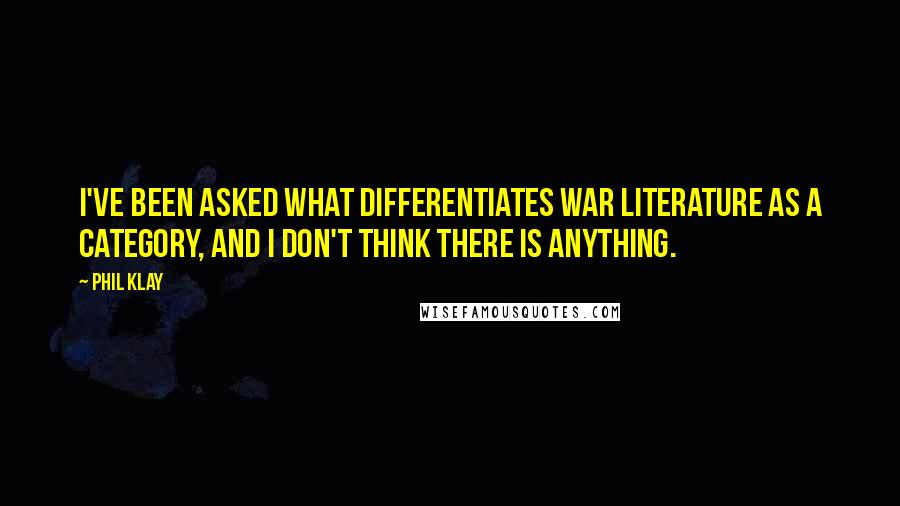 I've been asked what differentiates war literature as a category, and I don't think there is anything.
I've been asked what differentiates war literature as a category, and I don't think there is anything.
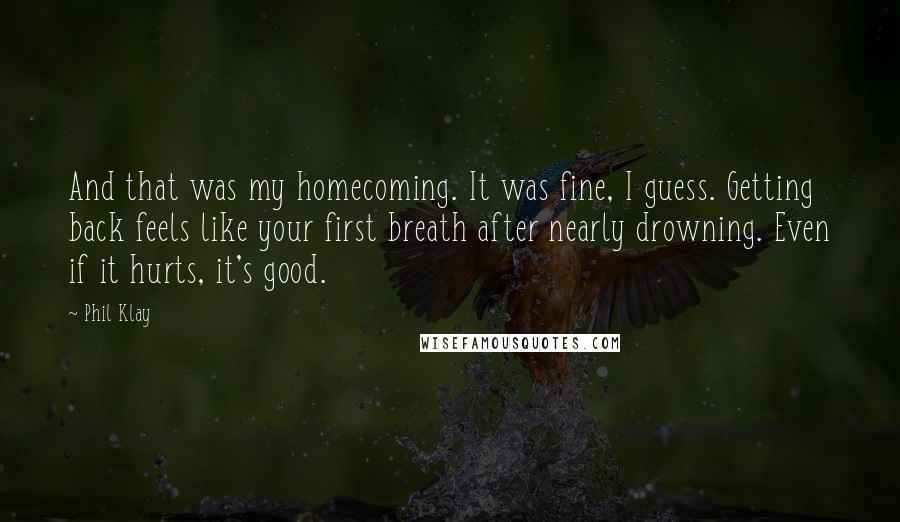 And that was my homecoming. It was fine, I guess. Getting back feels like your first breath after nearly drowning. Even if it hurts, it's good.
And that was my homecoming. It was fine, I guess. Getting back feels like your first breath after nearly drowning. Even if it hurts, it's good.
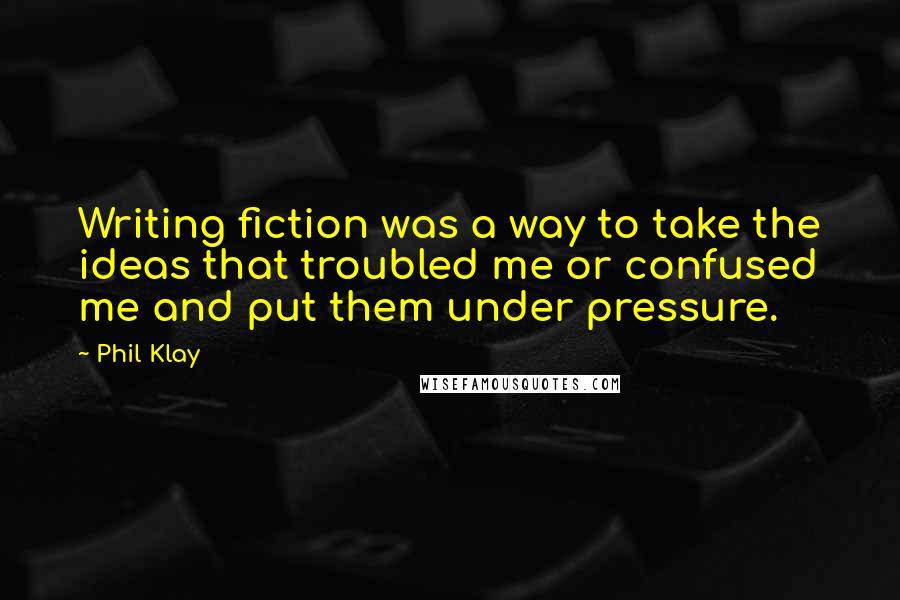 Writing fiction was a way to take the ideas that troubled me or confused me and put them under pressure.
Writing fiction was a way to take the ideas that troubled me or confused me and put them under pressure.
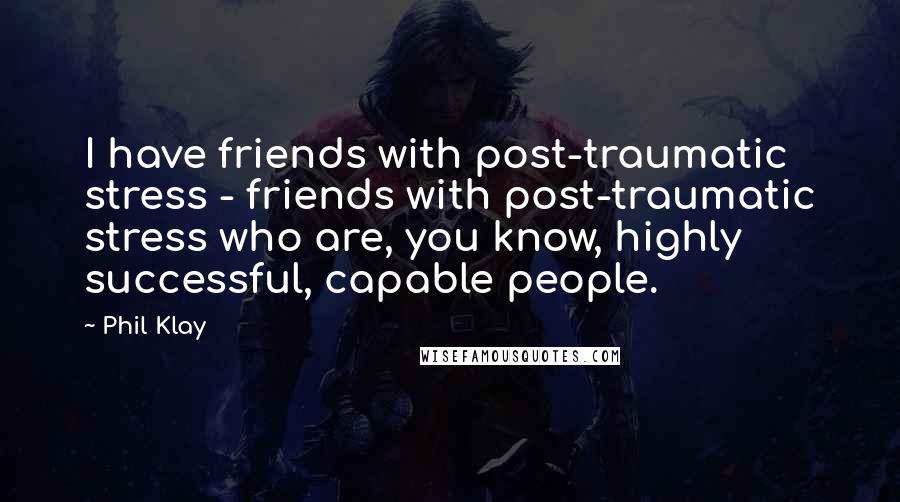 I have friends with post-traumatic stress - friends with post-traumatic stress who are, you know, highly successful, capable people.
I have friends with post-traumatic stress - friends with post-traumatic stress who are, you know, highly successful, capable people.
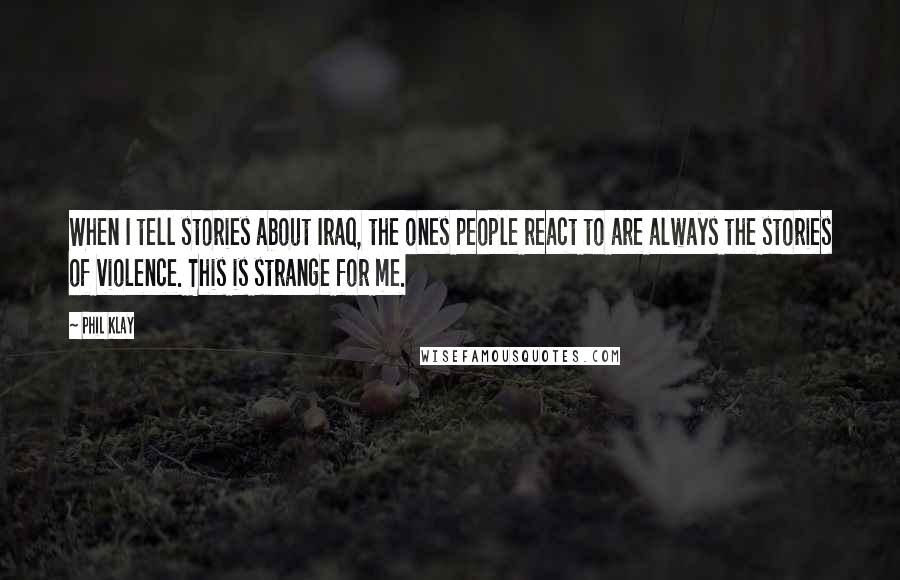 When I tell stories about Iraq, the ones people react to are always the stories of violence. This is strange for me.
When I tell stories about Iraq, the ones people react to are always the stories of violence. This is strange for me.
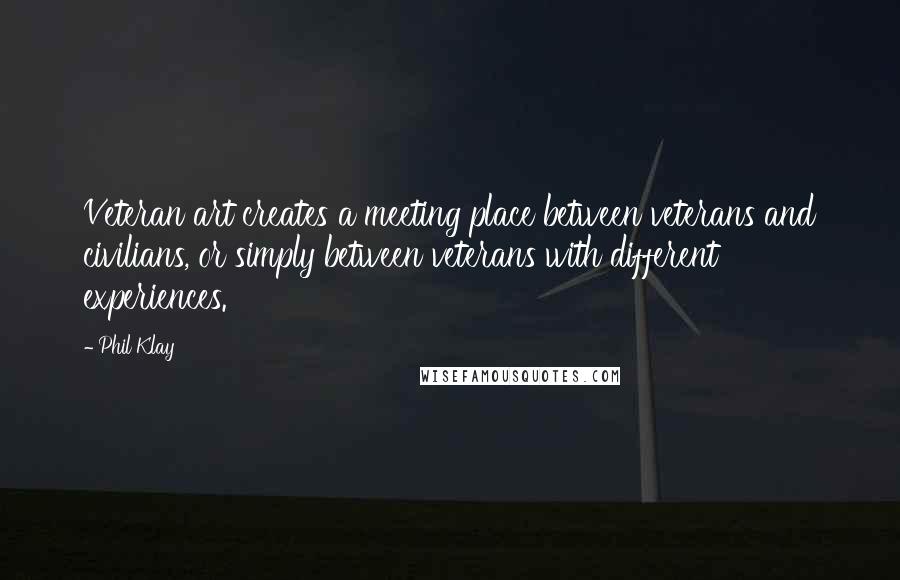 Veteran art creates a meeting place between veterans and civilians, or simply between veterans with different experiences.
Veteran art creates a meeting place between veterans and civilians, or simply between veterans with different experiences.
 I was studying with Peter Carey, Colum McCann; but also, my fellow students were really critical readers for me.
I was studying with Peter Carey, Colum McCann; but also, my fellow students were really critical readers for me.
 Certainly, my exposure in high school to writers like Flannery O'Connor, Shusaku Endo, Fyodor Dostoevsky and Graham Greene was formative.
Certainly, my exposure in high school to writers like Flannery O'Connor, Shusaku Endo, Fyodor Dostoevsky and Graham Greene was formative.
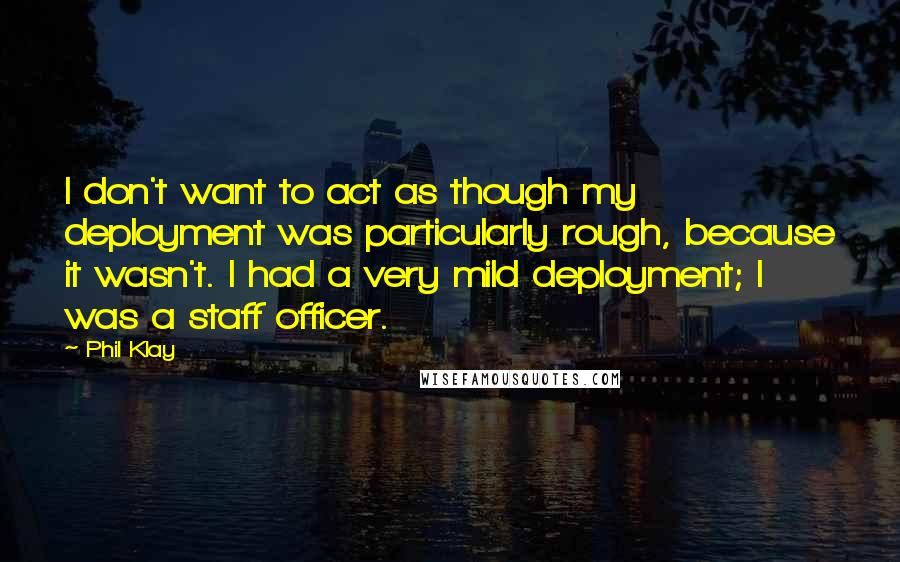 I don't want to act as though my deployment was particularly rough, because it wasn't. I had a very mild deployment; I was a staff officer.
I don't want to act as though my deployment was particularly rough, because it wasn't. I had a very mild deployment; I was a staff officer.
 I'd been in college studying English creative writing and history when I made the decision to join the Marines in the runup to the Iraq war.
I'd been in college studying English creative writing and history when I made the decision to join the Marines in the runup to the Iraq war.
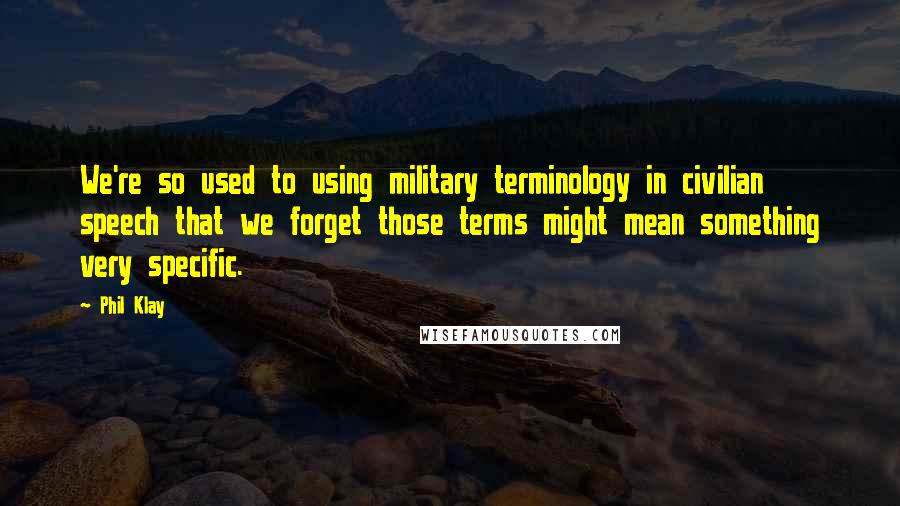 We're so used to using military terminology in civilian speech that we forget those terms might mean something very specific.
We're so used to using military terminology in civilian speech that we forget those terms might mean something very specific.
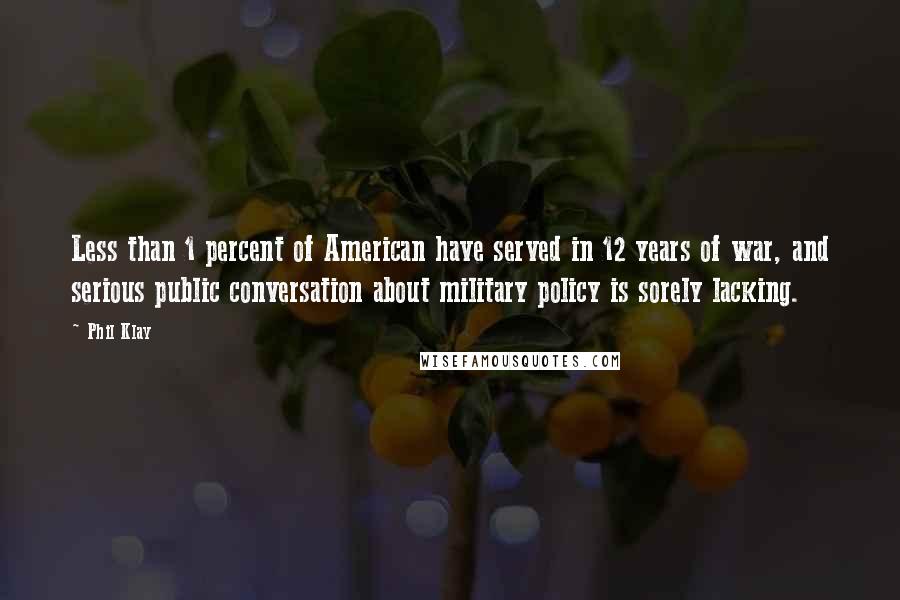 Less than 1 percent of American have served in 12 years of war, and serious public conversation about military policy is sorely lacking.
Less than 1 percent of American have served in 12 years of war, and serious public conversation about military policy is sorely lacking.
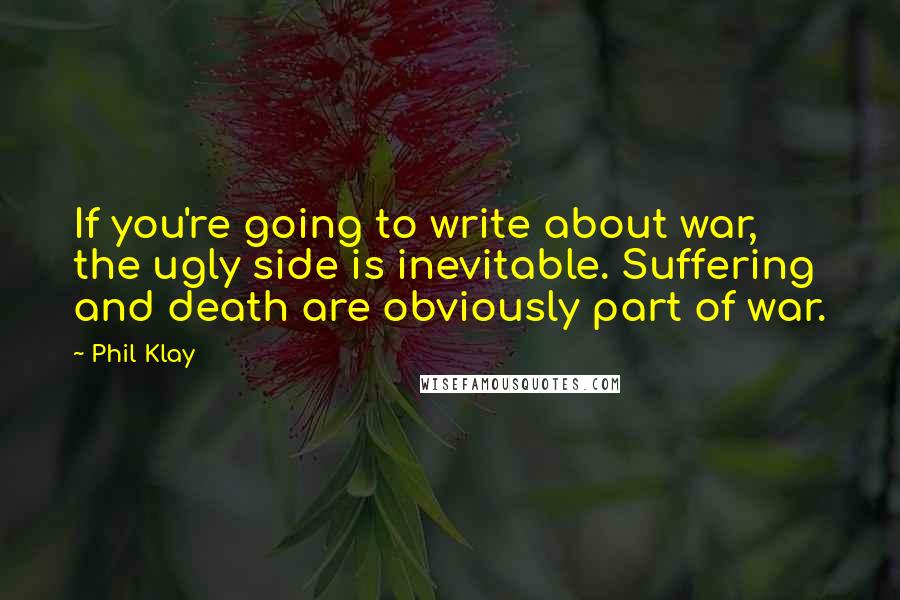 If you're going to write about war, the ugly side is inevitable. Suffering and death are obviously part of war.
If you're going to write about war, the ugly side is inevitable. Suffering and death are obviously part of war.
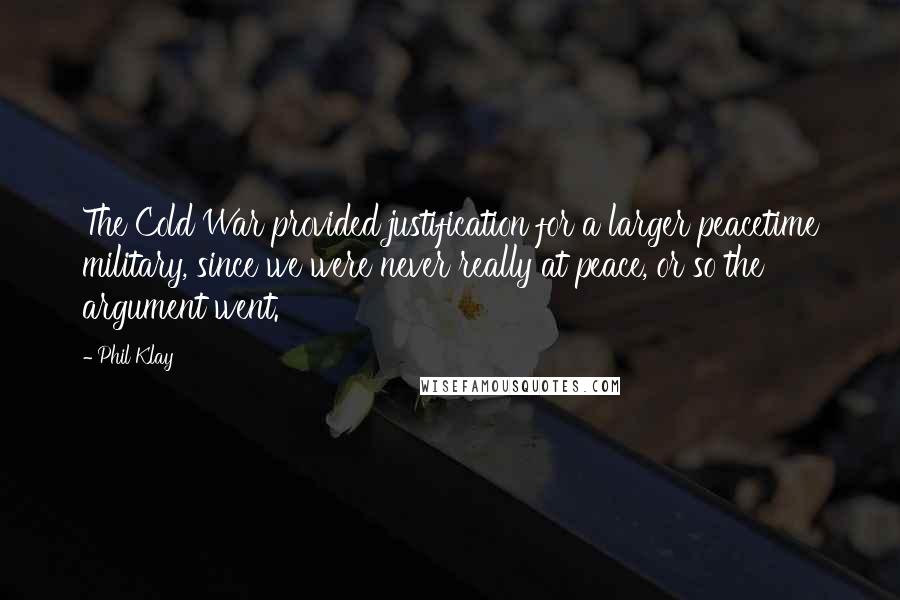 The Cold War provided justification for a larger peacetime military, since we were never really at peace, or so the argument went.
The Cold War provided justification for a larger peacetime military, since we were never really at peace, or so the argument went.
 I grew up a little north of New York City and went to high school at Regis, an all-boys tuition-free high school in Manhattan.
I grew up a little north of New York City and went to high school at Regis, an all-boys tuition-free high school in Manhattan.
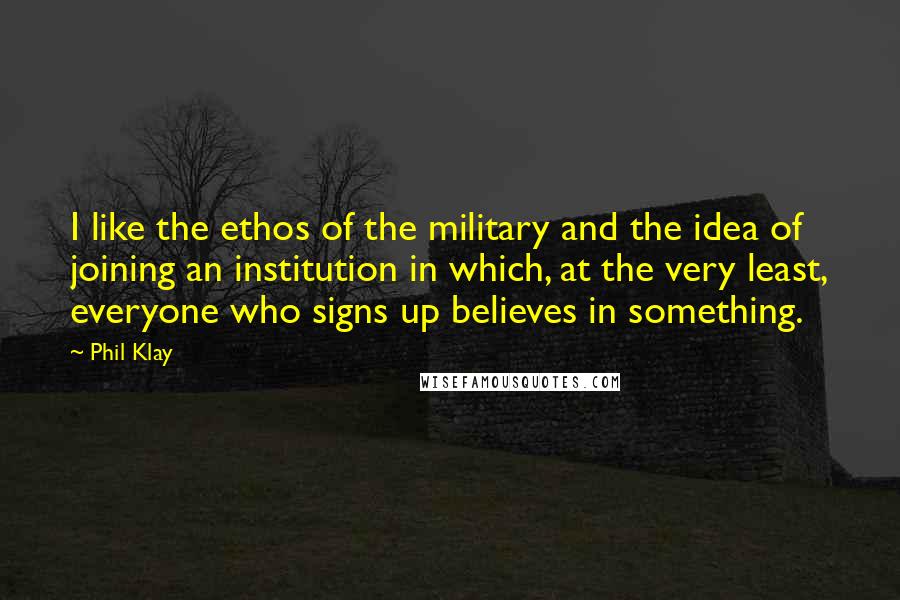 I like the ethos of the military and the idea of joining an institution in which, at the very least, everyone who signs up believes in something.
I like the ethos of the military and the idea of joining an institution in which, at the very least, everyone who signs up believes in something.
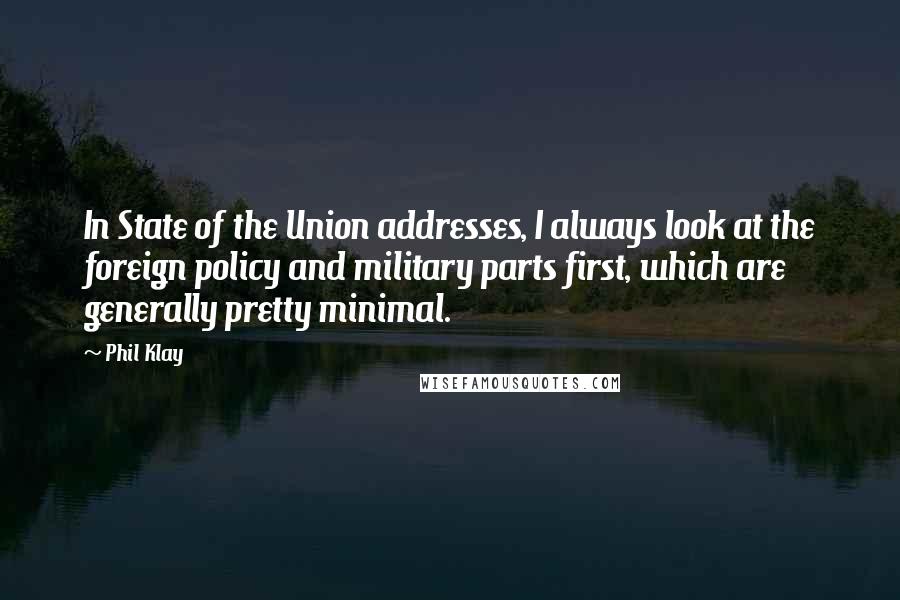 In State of the Union addresses, I always look at the foreign policy and military parts first, which are generally pretty minimal.
In State of the Union addresses, I always look at the foreign policy and military parts first, which are generally pretty minimal.
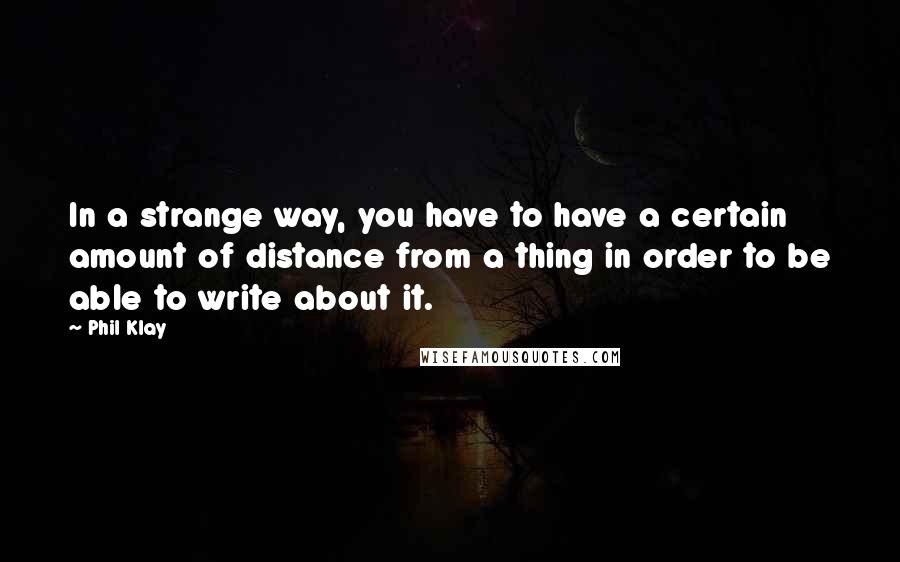 In a strange way, you have to have a certain amount of distance from a thing in order to be able to write about it.
In a strange way, you have to have a certain amount of distance from a thing in order to be able to write about it.
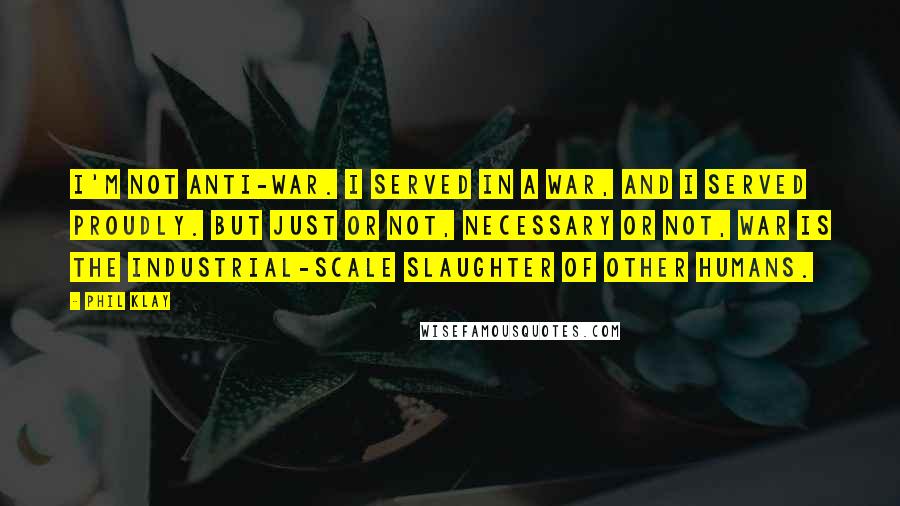 I'm not anti-war. I served in a war, and I served proudly. But just or not, necessary or not, war is the industrial-scale slaughter of other humans.
I'm not anti-war. I served in a war, and I served proudly. But just or not, necessary or not, war is the industrial-scale slaughter of other humans.
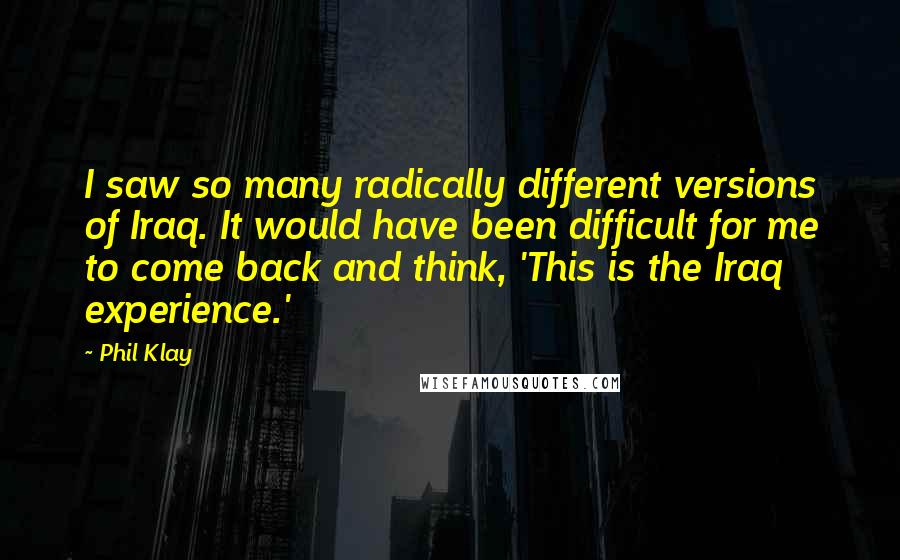 I saw so many radically different versions of Iraq. It would have been difficult for me to come back and think, 'This is the Iraq experience.'
I saw so many radically different versions of Iraq. It would have been difficult for me to come back and think, 'This is the Iraq experience.'
 Writing fiction means putting a lot of what you believe about the world at risk, because you have to follow your characters.
Writing fiction means putting a lot of what you believe about the world at risk, because you have to follow your characters.
 A great writer is a great writer ... Tolstoy was not a woman, but 'Anna Karenina' is still a pretty good book.
A great writer is a great writer ... Tolstoy was not a woman, but 'Anna Karenina' is still a pretty good book.
 Going to war is a rare experience in American culture, so it's easy for simple notions to gain a lot of weight. The reality is always more complex.
Going to war is a rare experience in American culture, so it's easy for simple notions to gain a lot of weight. The reality is always more complex.
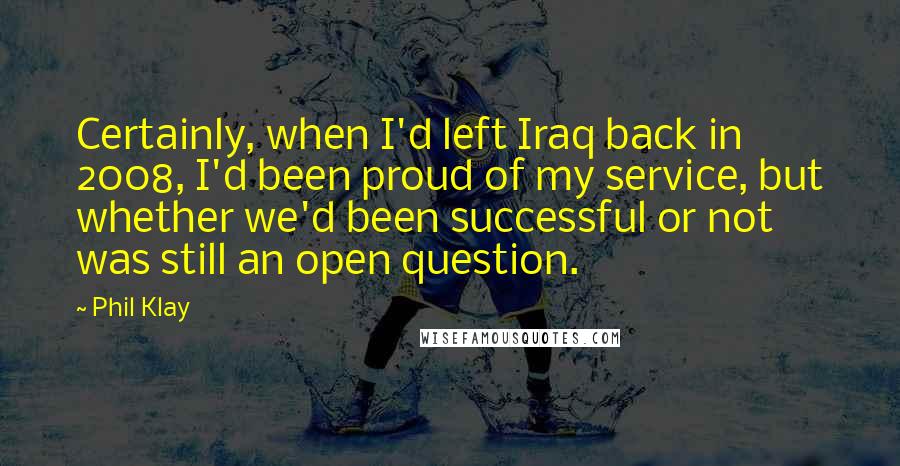 Certainly, when I'd left Iraq back in 2008, I'd been proud of my service, but whether we'd been successful or not was still an open question.
Certainly, when I'd left Iraq back in 2008, I'd been proud of my service, but whether we'd been successful or not was still an open question.
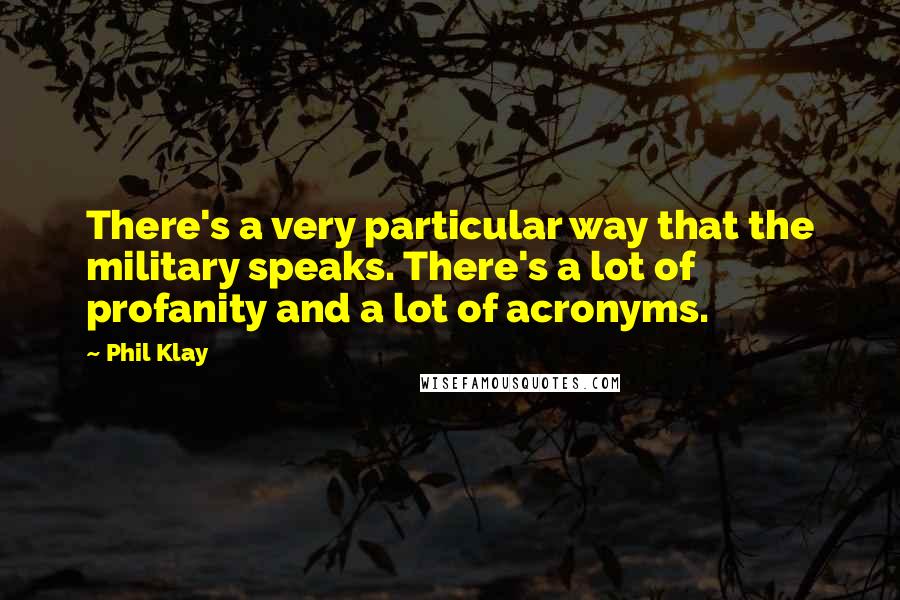 There's a very particular way that the military speaks. There's a lot of profanity and a lot of acronyms.
There's a very particular way that the military speaks. There's a lot of profanity and a lot of acronyms.
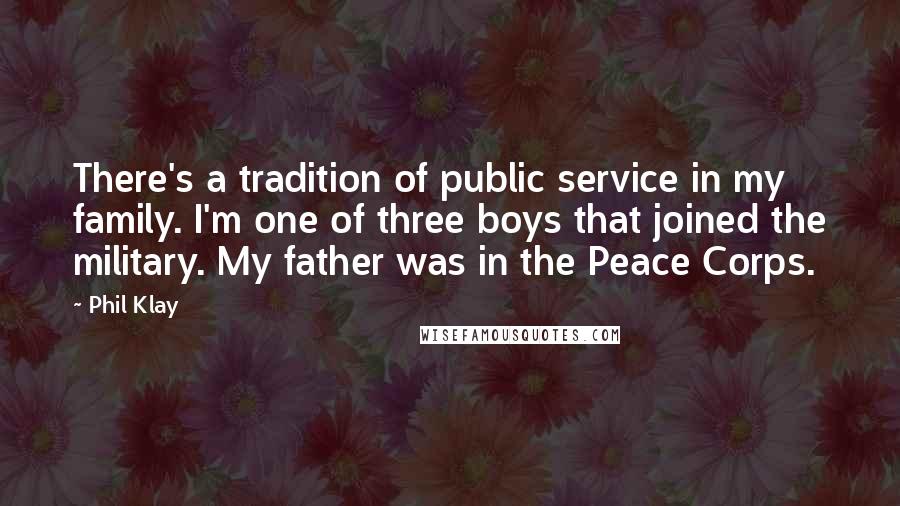 There's a tradition of public service in my family. I'm one of three boys that joined the military. My father was in the Peace Corps.
There's a tradition of public service in my family. I'm one of three boys that joined the military. My father was in the Peace Corps.
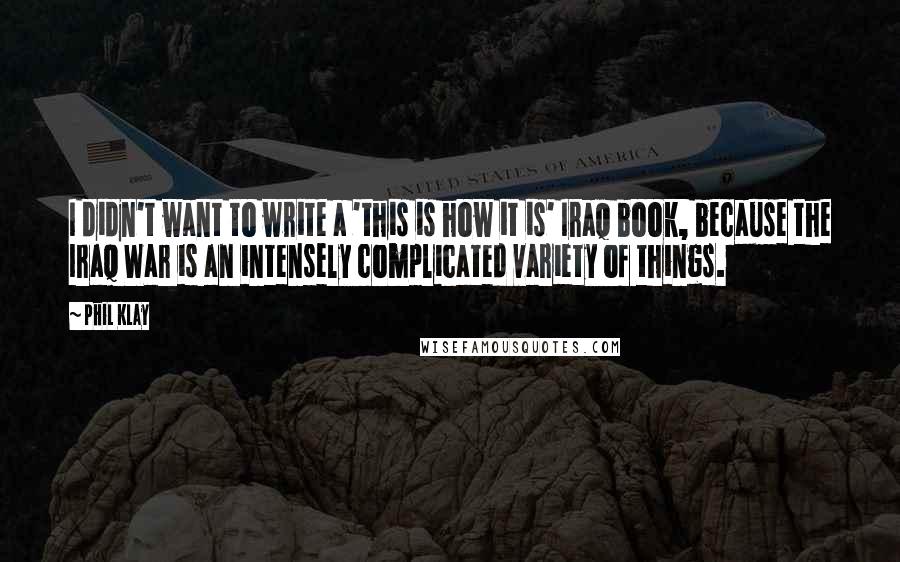 I didn't want to write a 'this is how it is' Iraq book, because the Iraq War is an intensely complicated variety of things.
I didn't want to write a 'this is how it is' Iraq book, because the Iraq War is an intensely complicated variety of things.
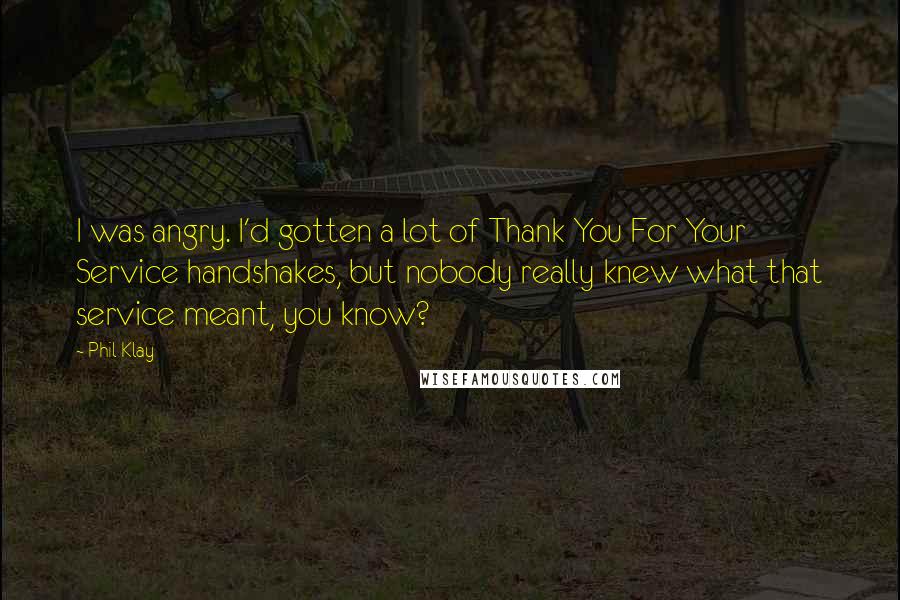 I was angry. I'd gotten a lot of Thank You For Your Service handshakes, but nobody really knew what that service meant, you know?
I was angry. I'd gotten a lot of Thank You For Your Service handshakes, but nobody really knew what that service meant, you know?
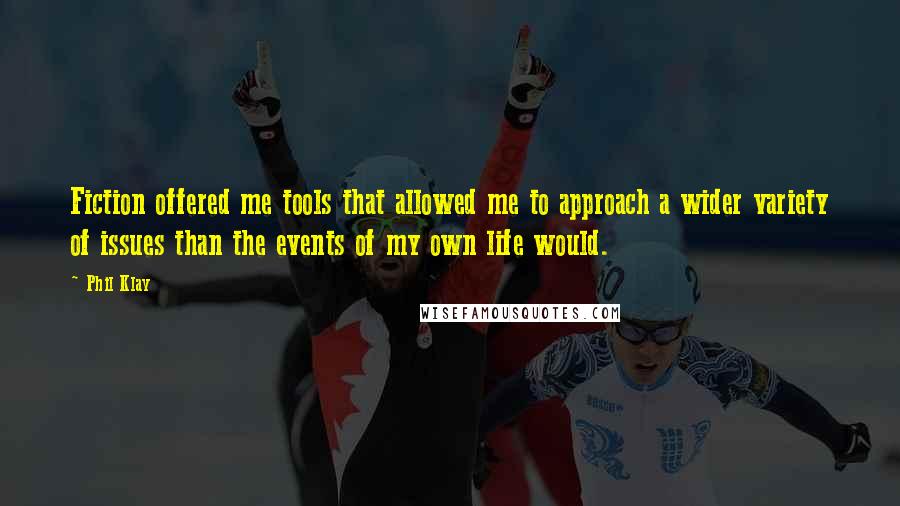 Fiction offered me tools that allowed me to approach a wider variety of issues than the events of my own life would.
Fiction offered me tools that allowed me to approach a wider variety of issues than the events of my own life would.
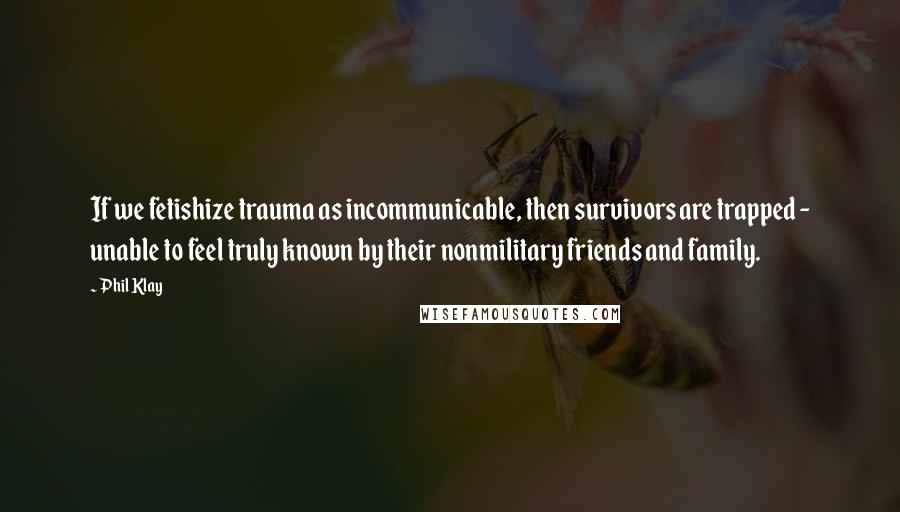 If we fetishize trauma as incommunicable, then survivors are trapped - unable to feel truly known by their nonmilitary friends and family.
If we fetishize trauma as incommunicable, then survivors are trapped - unable to feel truly known by their nonmilitary friends and family.
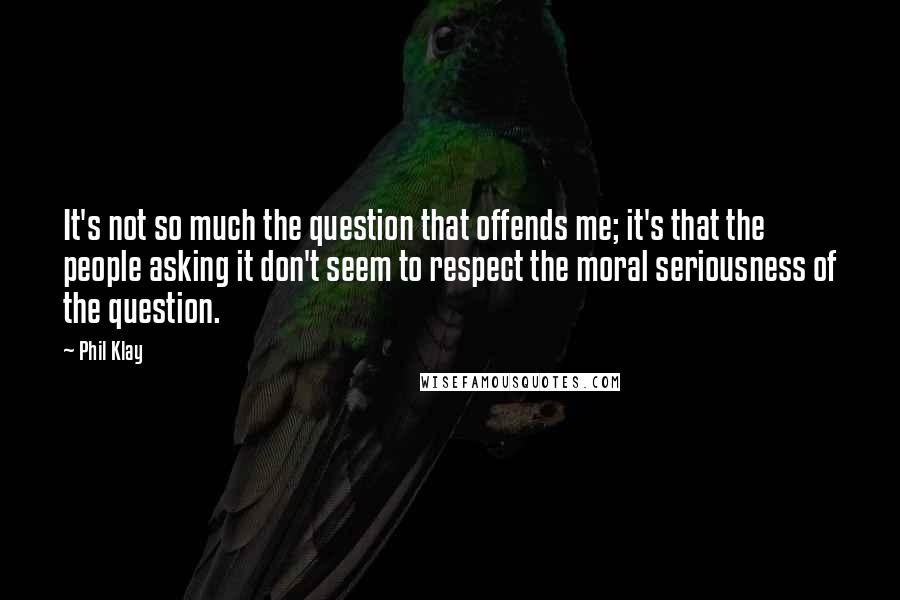 It's not so much the question that offends me; it's that the people asking it don't seem to respect the moral seriousness of the question.
It's not so much the question that offends me; it's that the people asking it don't seem to respect the moral seriousness of the question.
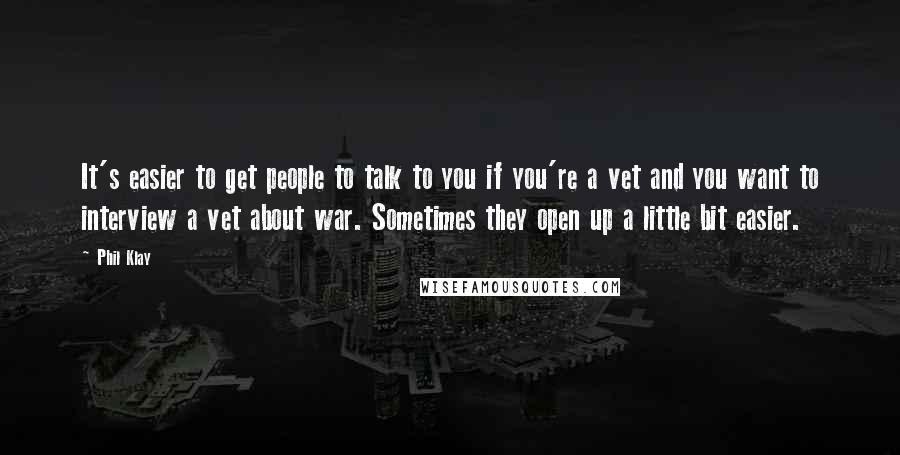 It's easier to get people to talk to you if you're a vet and you want to interview a vet about war. Sometimes they open up a little bit easier.
It's easier to get people to talk to you if you're a vet and you want to interview a vet about war. Sometimes they open up a little bit easier.
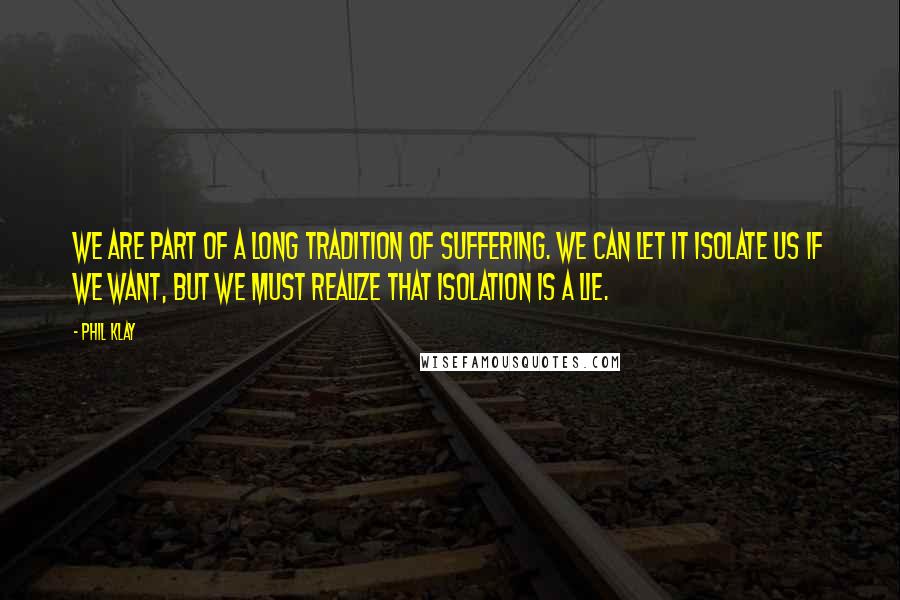 We are part of a long tradition of suffering. We can let it isolate us if we want, but we must realize that isolation is a lie.
We are part of a long tradition of suffering. We can let it isolate us if we want, but we must realize that isolation is a lie.
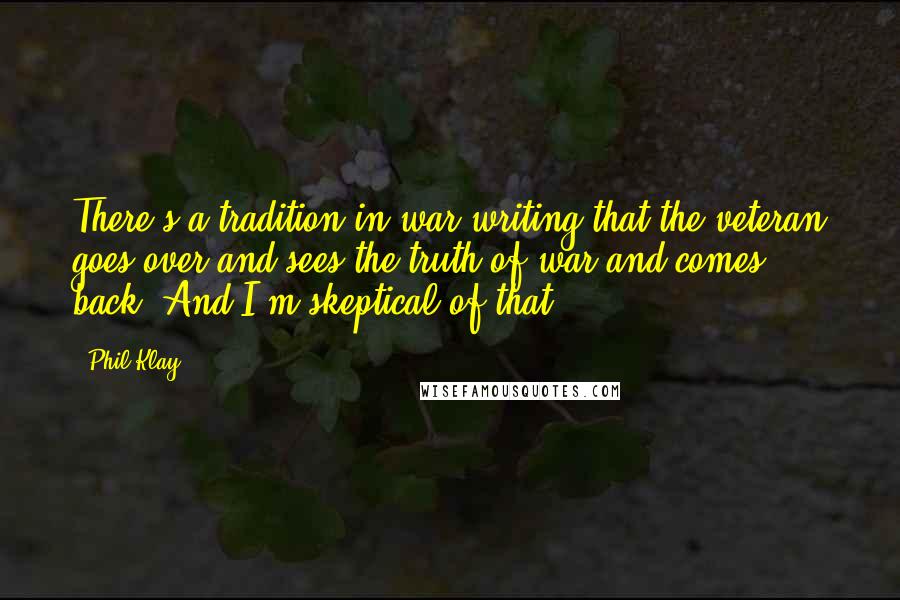 There's a tradition in war writing that the veteran goes over and sees the truth of war and comes back. And I'm skeptical of that.
There's a tradition in war writing that the veteran goes over and sees the truth of war and comes back. And I'm skeptical of that.
 I doubt there's anything you could say to Donald Rumsfeld that would puncture the armor of his narcissism.
I doubt there's anything you could say to Donald Rumsfeld that would puncture the armor of his narcissism.
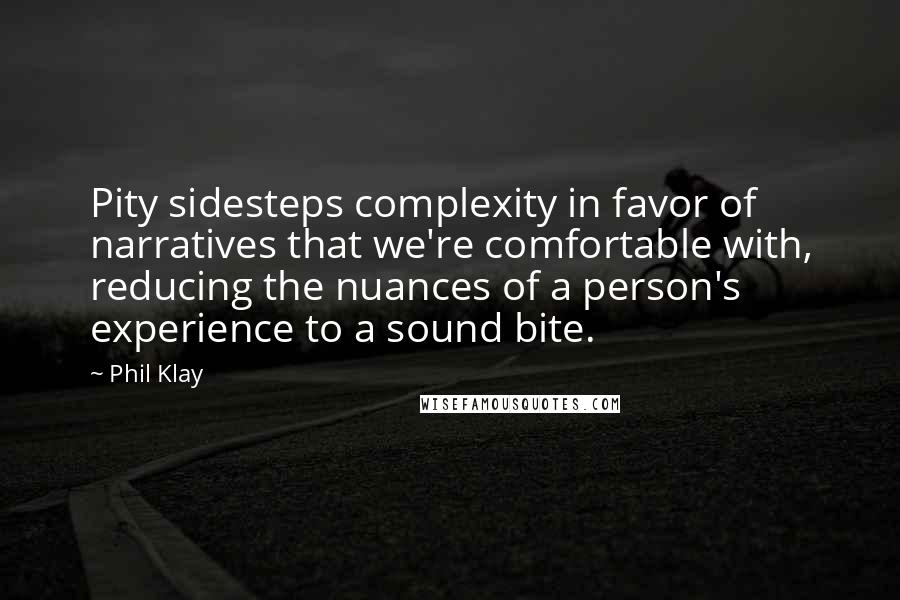 Pity sidesteps complexity in favor of narratives that we're comfortable with, reducing the nuances of a person's experience to a sound bite.
Pity sidesteps complexity in favor of narratives that we're comfortable with, reducing the nuances of a person's experience to a sound bite.
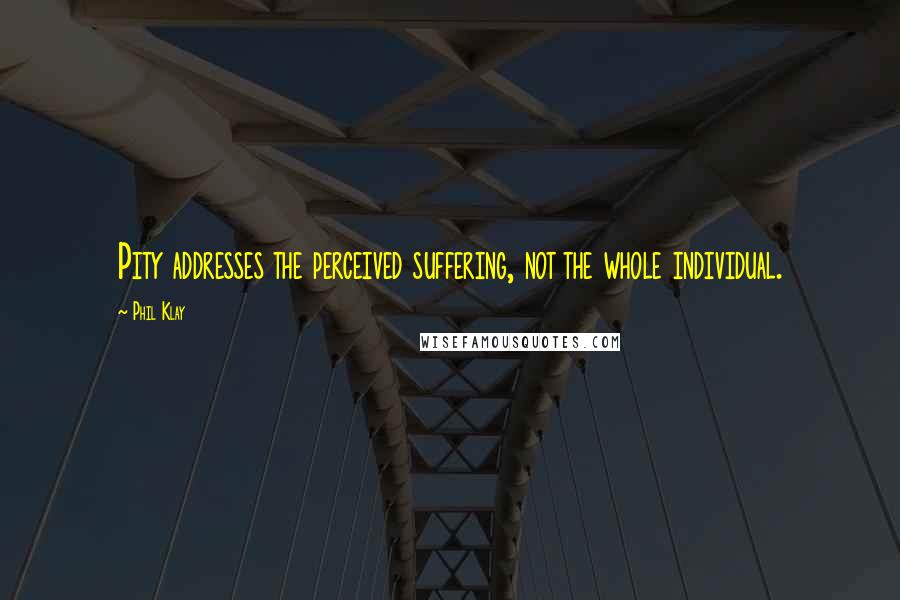
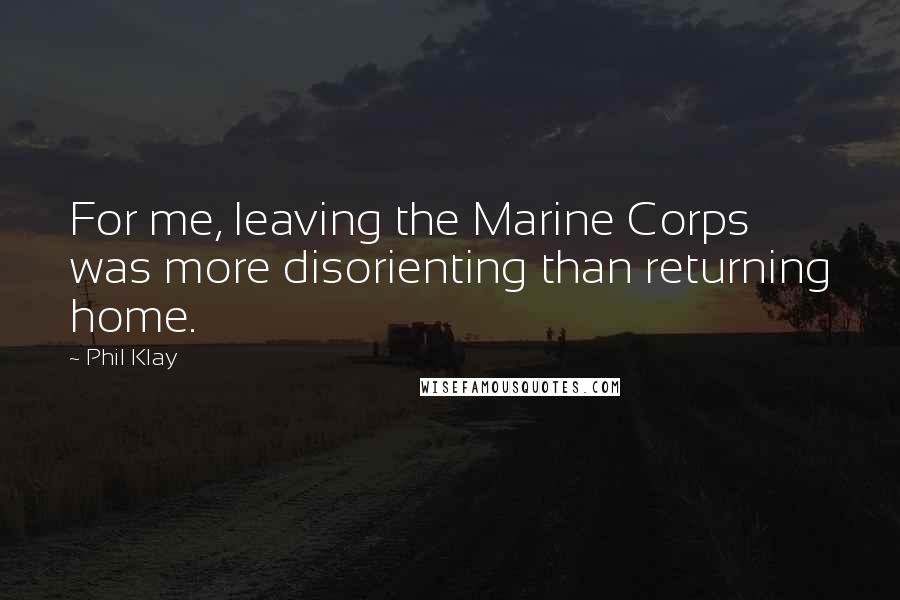
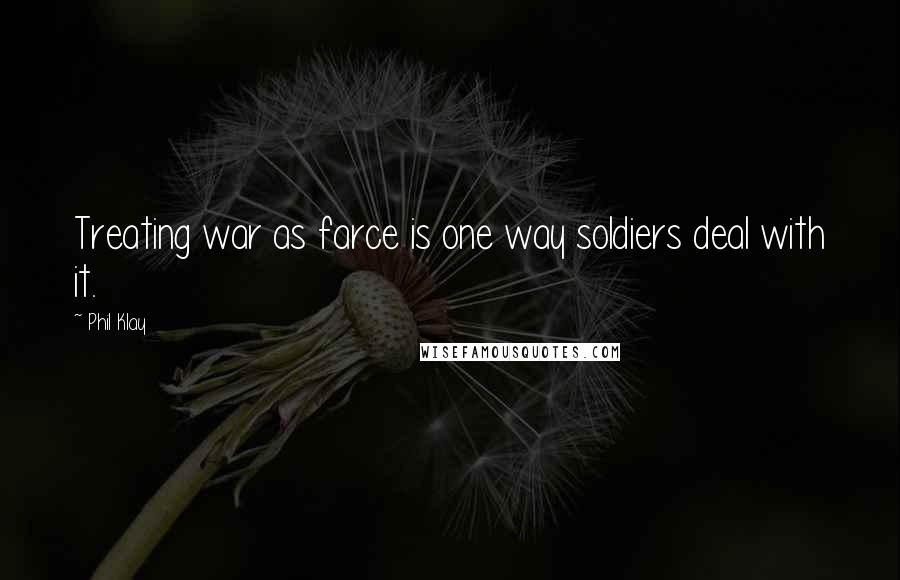


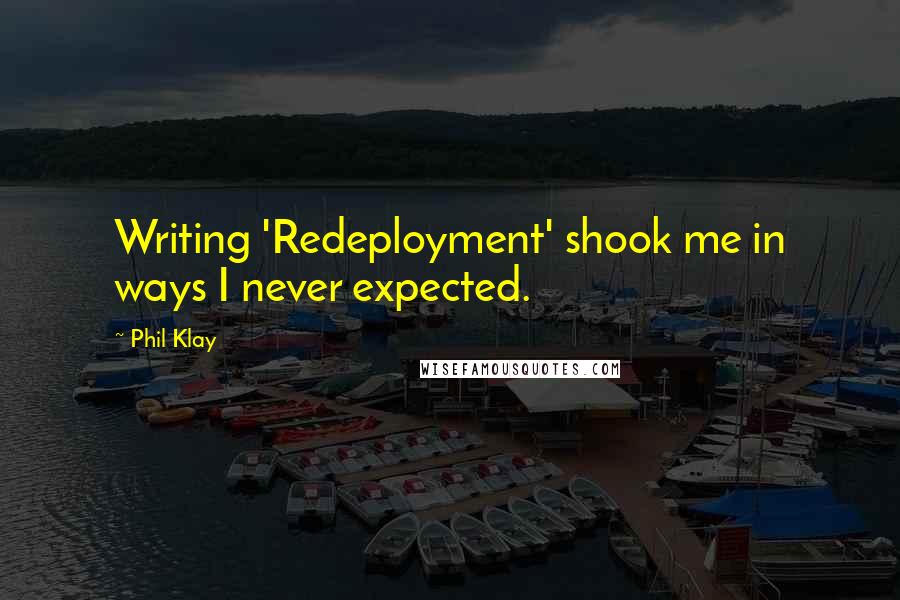
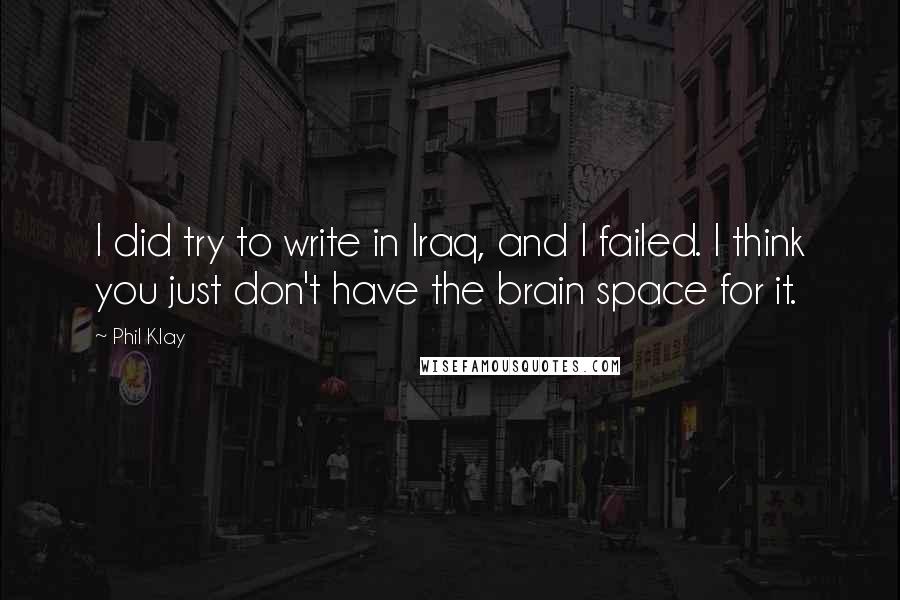

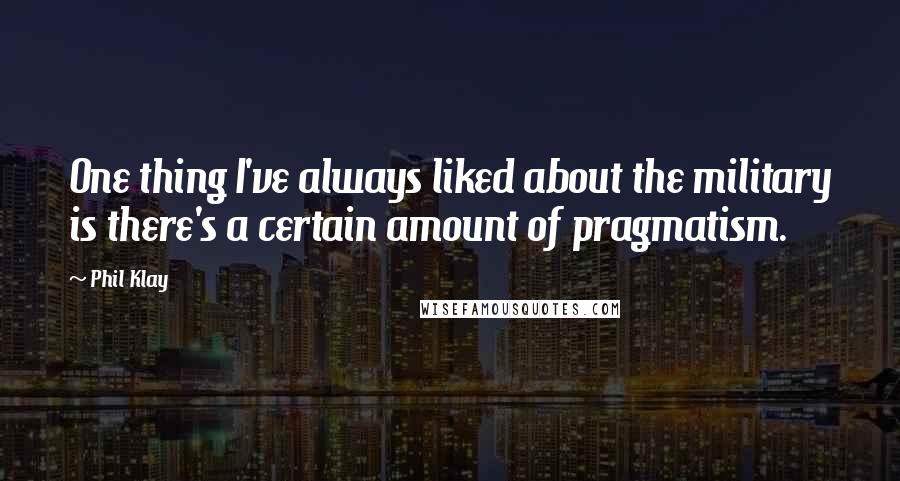

![Phil Klay quotes: [Prayer] will not protect you. It will help your soul. It's for while you're alive. Phil Klay quotes: [Prayer] will not protect you. It will help your soul. It's for while you're alive.](https://www.wisefamousquotes.com/images/phil-klay-quotes-1014944.jpg)
